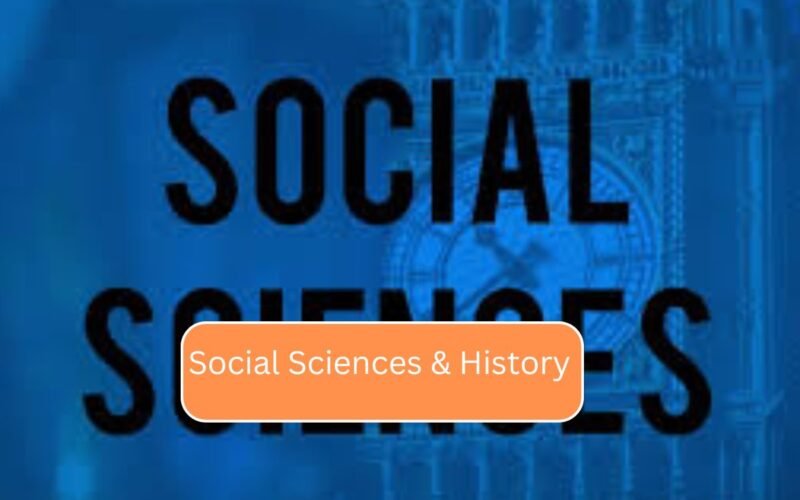Social Sciences and History are essential fields that help us understand human behavior, society, and the events that have shaped civilizations over time. While history examines past events and their impact, social sciences study human interactions, structures, and institutions to analyze present-day society. Together, they provide valuable insights for informed decision-making, cultural understanding, and social progress.
What are Social Sciences?
Social Sciences encompass a range of disciplines that study society and human behavior. These fields use observation, research, and analysis to explore how people interact, make decisions, and organize themselves within communities.
Key Disciplines in Social Sciences:
- Sociology: Studies social behavior, institutions, and relationships within communities.
- Psychology: Explores human mind, behavior, cognition, and emotions.
- Political Science: Examines governance, politics, policies, and public administration.
- Economics: Analyzes production, distribution, and consumption of resources.
- Anthropology: Investigates human cultures, traditions, and societal evolution.
- Human Geography: Studies the relationship between people and their environments.
What is History?
History is the study of past events, societies, and civilizations. It examines causes, effects, and patterns in human activities over time. By analyzing historical events, history provides context for present issues and helps societies learn from past experiences.
Key Areas of History:
- Ancient History: Studies early civilizations and human origins.
- Medieval History: Focuses on societies, kingdoms, and cultural developments in the middle ages.
- Modern History: Examines events from the Renaissance to contemporary times.
- World History: Explores global interactions, trade, conflicts, and cultural exchange.
- Social & Cultural History: Studies the everyday life, traditions, and social changes of people.
Importance of Social Sciences & History
These fields are vital for understanding societies, promoting critical thinking, and shaping informed citizens:
- Cultural Understanding: Helps appreciate diversity, traditions, and social norms.
- Informed Decision-Making: Guides policy-making, governance, and social planning.
- Critical Thinking: Encourages analysis of social issues, conflicts, and historical events.
- Problem Solving: Offers insights to address societal challenges like inequality, poverty, and political instability.
- Preserving Heritage: History preserves knowledge of past civilizations, art, and culture for future generations.
Skills Required in Social Sciences & History
Professionals in these fields require analytical, research, and communication skills:
- Strong research and analytical abilities
- Critical thinking and problem-solving skills
- Excellent writing and communication skills
- Data collection and interpretation (qualitative and quantitative)
- Understanding of cultural, social, and political contexts
Career Opportunities
Graduates in Social Sciences and History can pursue a variety of rewarding career paths:
- Historian or Archivist
- Sociologist or Anthropologist
- Policy Analyst or Political Consultant
- Researcher in Think Tanks or NGOs
- Teacher or Professor in Social Studies or History
- Museum Curator or Cultural Heritage Specialist
- Journalist or Media Analyst
Conclusion
Social Sciences and History offer a deep understanding of human society, culture, and past events. They equip individuals with analytical and critical thinking skills necessary for addressing contemporary societal challenges. For those interested in exploring human behavior, societal structures, and historical narratives, these fields provide enriching academic and professional opportunities that contribute to shaping a more informed and equitable world.



